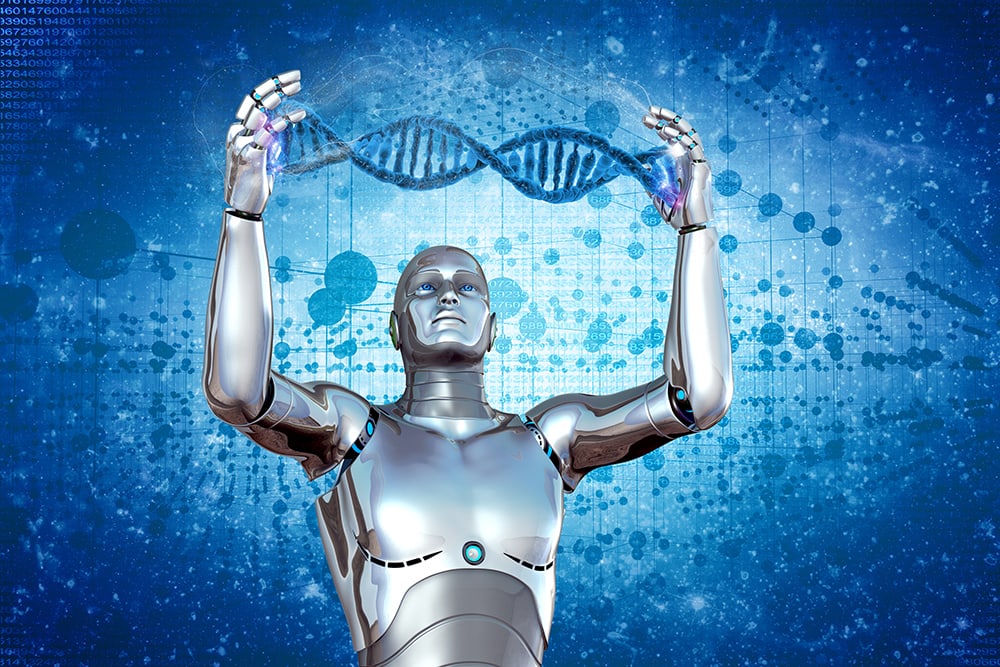
Technology has an enormous role to play in solving the grand challenges of today, from geopolitical tensions and religious fanaticism to poverty, climate change and the endangerment of privacy and security.
Many threads of radical new technological developments and scientific disciplines are converging, or running in parallel, with an utterly unprecedented potential impact, including biotechnology, nanotechnology, neurotechnology, artificial intelligence, drones, sensors, 3D printing, and advanced solar energy. Over the next five to ten years, these and other technologies will become increasingly mainstream as they ramp up capability, cost, scale and competitive reach.
In healthcare, for example, bio tech sensors working with portable nano chips and cloud networks will allow the diagnosis of widespread diseases such as HIV, tuberculosis or malaria within the hour, more efficiently, easily and accurately. Advances in bio technology mean the cost of DNA sequencing has dropped at an astonishing rate from around a billion US dollars 13 years ago to less than 1 000 dollars today, when your personal profile can be produced within 90 minutes. Affordability and accessibility at this level will drive a range of services based on DNA profiling, from restaurant menus tailored to your individual tolerance of carbohydrates to personalized viral loads of medicines or individual cancer treatments increasing effectiveness and reducing side effects.
In artificial intelligence, developments in machine learning and deep learning are producing extremely powerful super computers able to recognize patterns and use algorithms to solve complex issues and problems without any human intervention. Within the next five years, robots will be equipped with perfect computer vision, object recognition, speech and language capabilities enabling them to utterly transform a multitude of vertical markets as costs are driven down, services and advertising highly personalized, security and disaster management improved.
The developments with the biggest immediate impact include sensors creating the Internet of Things, big data and deep learning algorithms, bitcoin currencies, drones and robotics, including robo-cars. Longer term, the commoditization of graphene will radically impact sectors from auto construction to consumer electronics, transportation and household appliances. A super material 200 times stronger and six times lighter than steel, graphene is highly conductive, energy efficient, sustainable, malleable and flexible – with the power to transform our physical reality to a large degree.
These are just a handful of examples of the tsunami of change coming our way. At the heart of all of this technology, as regulator, supporter, investor, user and beneficiary, sits government. Government, like finance, retail, media, energy or IT, is an information-enabled business, directly influenced by developments in artificial intelligence, machine learning and deep learning apps in particular. It is the reach of government into every area of our lives and societies that makes this so significant. Applications in tax collection, detection of fraud, policing, and predicting crime; avoiding or better preparing for calamities, pandemics, energy shortages or natural disasters; connecting different modalities and systems from education to health, security and transport – in all of these areas, algorithms allow governments to be more responsive, flexible and preventative.
All this technology can, of course, be used for good or for ill, to tackle our global grand challenges or to drive terrorism, criminality, hacking and disruption of cities or whole nations. Governments and businesses need to be aware of the dangers of using technology for surveillance – and of the backlash from citizens and consumers empowered to use drones, sensors and cameras to open up corporate and government powers to a more equal degree of scrutiny.
The enormous market for personalized products and services based on DNA profiling must be regulated responsibly to avoid discrimination or abuse by employers, governments or health insurance companies. And we need to talk in detail at international level, and very soon, to establish consensus on corporate governance and cross-government issues of cyber security and bio technology, just we did with the Montreal protocols on ozone levels thirty years ago.
We need to be prepared for a revolution at the level of government, business and society, altering established social and economic structures beyond recognition. That’s why I am taking part in the Leadership Summit on The Future at ITU Telecom World 2014. Because we need to be aware of the extent of these exponential changes in order to prepare for our future.
